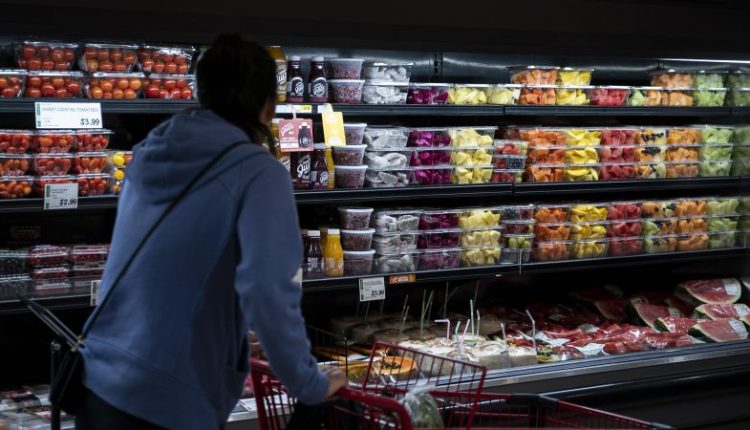The US economy feels lousy for so many people. So you’d think some really, really, shockingly good news about the job market would give Americans’ spirits a boost.
It won’t. Here’s why: Inflation is still biting. Prices continue to rise faster than anyone would like. Although annual price increases aren’t in wild-runaway mode like they were when inflation was above 9% last year, inflation is still above 3%, which is unhealthy for the economy, according to the Federal Reserve and a number of economists. (The Fed believes 2% inflation is ideal over the long haul.)
When you see gas prices at $3.75 on average (and above $4 in plenty of places across the country), mortgage rates above 7% and at a 23-year high, food prices going up at the grocery store, and a restart to student loan payments for millions of Americans, that’s why a majority of Americans say President Joe Biden’s policies have made economic conditions worse, according to a CNN Poll conducted by SSRS.
As prices continue to grow, paychecks are barely keeping pace. They grew 4.2% over the past year, the slowest pace of growth since the early days of the pandemic in 2020.
So a robust job market won’t make most people feel like the economy is strong.
In fact, a strong job market may ultimately make many Americans feel worse. How? The Fed is working to slow the economy by hiking interest rates — the only tool it has to fight inflation. A still-robust job market — see the 336,000 jobs added last month — means the central bank could continue to increase rates without fear of sending the economy into a recession.
“The economy is roaring with the demand for workers literally through the roof,” said Chris Rupkey, chief economist at FwdBonds, in a note to clients on Friday. “Interest rates are likely to remain higher for longer to ensure the inflation fire is out.”
JPMorgan Chase CEO Jamie Dimon repeated in recent weeks his fear that rates could go to 7%. Government bond yields are rising to multi-year highs in expectation of rates going up — and loans pinned to those yields, including mortgages and credit card rates — are set to go up, too.
Credit card rates are well north of 20% on average, a two-decade high. People who carry a balance month to month are paying a hefty premium in interest, meaning it will take even longer to pay off their balances, shelling out a lot of money every month just for interest, which means it will take even longer to pay off what they owe.
Meanwhile, US mortgage rates climbed to 7.49% this week, up from 6.66% a year ago and the highest level in more than two decades. That has kept the housing market in neutral, keeping the key to middle-class wealth growth out of reach for so many would-be homebuyers.
We should never cheer a bad job market. But a job market that has remained this healthy for this long really isn’t excellent news for average Americans struggling to pay their bills. Meanwhile, we remain in a “good news is bad news” conundrum that makes most people feel like the US economy is in a bad spot.
Read the full article here

